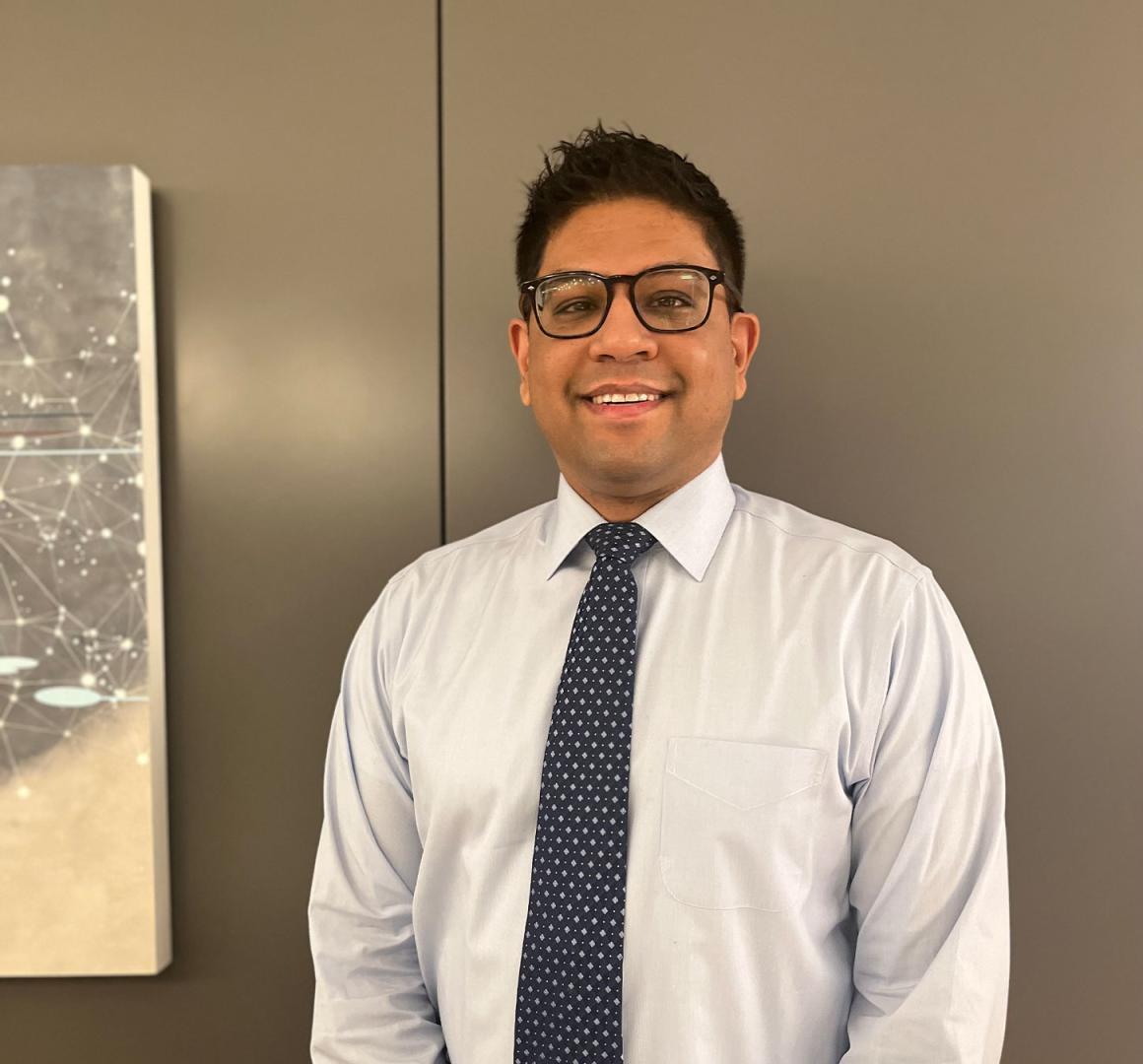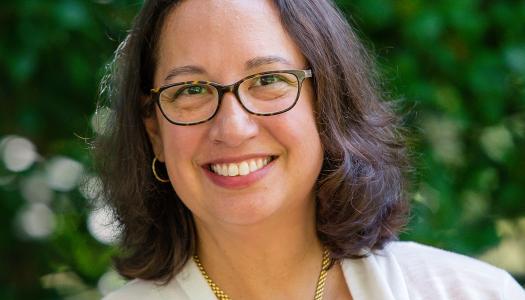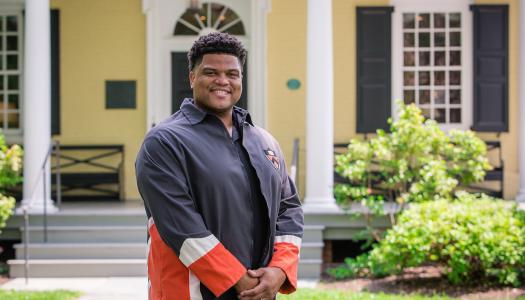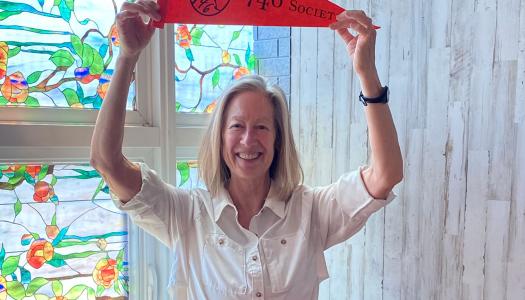Call to service for LGBTQ activist Suman Chakraborty ’97 began at Princeton

When Canadian-born Suman Chakraborty ’97 walked into the packed Whig Hall Senate Chamber for the 1993 debate on whether the U.S. military should allow gay service members, he had no idea he would walk out a changed man.
Since hearing Jason Holley ’95’s Reflections on Diversity talk for first-year students, Chakraborty had anguished over whether he himself was gay. As he later revealed in an interview for the LGBTQIA Oral History Project, an effort he co-chaired in 2017, he had spent those first few months on campus soul searching, confiding his feelings to only a few.
But that night in Whig Hall, a speaker suggested that living a closeted life was not a hardship. Chakraborty had lived the opposite.
He walked to the podium after the presentations. “I don’t know what made me go up there, but I did,” Chakraborty recalled. “What I remember saying is repeating that comment that the student had made of how being in the closet was not a big deal. And I told the audience that wasn’t true and that I knew that wasn’t true because I had been in the closet. I wanted them to know what it was like, and I came out to the room. I have no idea what I said after that.”
Three years later, it was Chakraborty who gave the Reflection on Diversity talk to incoming first-year students. He spent his Princeton years promoting LGBTQ rights, a cause that he continues to support.
Finding Himself
Initially, Chakraborty trashed his application to Princeton. No one from his Montreal-suburb high school, let alone his tight-knit South Asian community, had attended an Ivy League school. The next morning, however, he pulled the papers out of the garbage and decided to see what would happen.
Now as he prepares for his 25th Reunion, Chakraborty, an attorney based in New York City specializing in insurance issues, credits his professional and personal trajectory to the formative years he spent on campus.
At Princeton, Chakraborty became active with the Lesbian Gay Bisexual Alliance, promoting events to bring a greater awareness about the gay community. As a concentrator in the School of Public and International Affairs, Chakraborty combined his activism with his academics; his senior thesis examined the struggle to protect gay and lesbian youth in American high schools.
For his efforts, Chakraborty was awarded the Harold Willis Dodds Achievement Award at graduation. The award recognizes a senior who best embodies “the clear thinking, moral courage, a patient and judicious regard for the opinion of others, and a thorough devotion to the welfare of the University and the life of the mind” that were qualities of Princeton’s 15th president. The citation noted Chakraborty’s service as LGBA treasurer, peer educator, public relations chair, chair of the governance board and president, as well as his work as a residential adviser and minority affairs adviser in Rockefeller College and vice president of the International Students Association.
“One of the things that Princeton taught me first and foremost was about the importance of community,” he said. “You can’t do these things on your own. The things that you learn in a new setting like Princeton is how you can grow with the support of other people.”
Continued Service
Chakraborty fulfilled a life-long dream in becoming a lawyer and found Princeton provided an entre to his new world. A partner at his first firm, John Nonna ’70, mentored him and provided a role model of civic service.
When not focused on his insurance specialty, Chakraborty volunteered for the National LGBTQ Task Force, the country’s oldest national advocacy organization, serving as co-chair on the board of directors and the board’s political action fund. Pre-pandemic, he was able to arrange Princeton Internships in Civic Service internships for University students with the organization.
“At Princeton I made connections, friendships, and I learned the importance of having support and having community,” he said. “And I learned that I needed to carry that on — it didn’t stop once I graduated. Because I had so many opportunities and resources provided to me, it was my responsibility to carry my activism on to a broader community beyond just Princeton.”
Over the years, he’s volunteered for pro bono work, including the successful representation of LGBT and HIV+ political asylum applications in U.S. Immigration Courts, the drafting of an amicus brief to the Iowa Supreme Court in support of marriage-equality litigation, and the drafting of an amicus brief to the U.S. Supreme Court in support of the rights of adoptive same-sex parents.
This sense of responsibility also has included service to Princeton. In addition to a commitment to PICS, he has served as vice president of the Fund for Reunion/Bisexual Transgender Gay and Lesbian Alumni (FFR/BTGALA), as a member of the Alumni Council’s Committee on LGBT Affairs, as a volunteer on the Alumni Council Schools Committee and as a member of the steering committee for the 2013 Every Voice affinity conference.
What Service Means for Him
What does Chakraborty think of when he hears the word “service”?
“I think about it in terms of the resources that I have available to me,” he said. “When I went to Princeton, I come from a modest family background. Thanks to some incredible financial aid, I was lucky to go to Princeton. And over the years, thanks to Princeton, and thanks to my graduate school, I have resources that I can give back, resources beyond just money.”
As a member of the Mintz law firm, Chakraborty’s resources include doing pro bono work and making meeting space available occasionally at the firm’s offices. In his personal time, he joins boards where he feels he can make the most impact. With the LGBTQ National Task Force, he saw an opportunity to work as closely as possible with the staff guiding the LGBT movement.
The pandemic spurred Chakraborty to take stock of his commitments. He took some time to think and research, and recently joined two new boards: the Stonewall Community Foundation and the MCC Theater, both based in New York City.
Joining the Stonewall board allows Chakraborty to shift slightly from advocacy work, he said, although the focus remains on LGBTQ and human rights issues. The foundation helps people strategize their giving to better support these causes.
As to joining the theater board, Chakraborty laughed and said, “I have no creative bones in my body whatsoever.” Instead, by joining the off-Broadway theater’s board, he hopes to broaden his own idea of service in a new direction.
“Sometimes it helps to have people who look at things differently, think about things differently, have different kinds of ideas,” he said. “I have no illusion about the fact that I am not on the frontlines doing the service work. There are incredibly talented people who have devoted their lives to it. My view of service is that I need to be doing something to support them.”
Circling Back
Chakraborty plans on returning to Princeton to celebrate his big reunion, having recently mailed in his check for his class jacket.
“I’m very excited,” he said about Reunions. “It’s incredible how quickly it feels like it’s gone, and yet how much has happened in the last 25 years. So I think it is the perfect time in my life to go back to where I think my view of service started and reconnect with that.”


